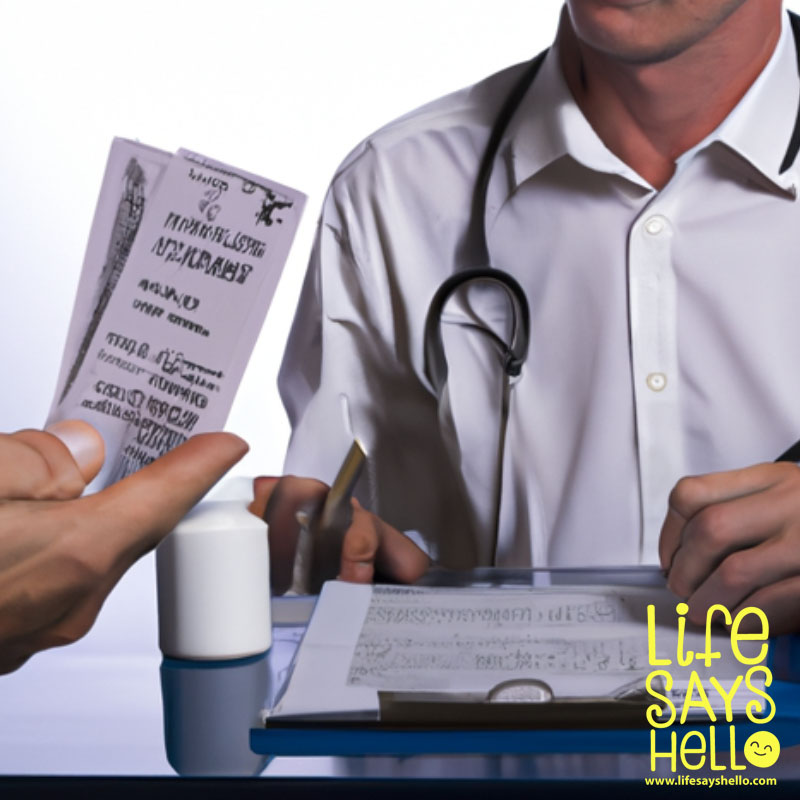Your Comprehensive Guide to Symptom Checkers for Adults

Feeling under the weather and unsure of what's going on? It's cool; you're not alone. Amid the ocean of medical lingo and hefty doctor fees, symptom checkers for adults are a great starting point to figuring out what's up.
As an adult, dealing with health issues can be scary and confusing. With the expansion of the digital world, there's a hoard of information on the internet and knowing what to trust can be foggy. That's where online symptom checkers come in!
They're simple, accessible, and give you an idea of what might be going on. But, fair warning: they're not your one-size-fits-all offline doc hiding behind the screen; they won't magically diagnose you with 100% accuracy. They're here to guide you, not replace a real one-on-one talk with a healthcare professional. Keep this golden nugget in mind as you read through this guide.
Your Go-To Symptom Checkers for Adults
Rolling in the details of some top picks for efficient virtual health-help, catered just for adults. Ready? Let's dive in!
WebMD Symptom Checker: Your Virtual Health Encyclopedia
WebMD is like the Google of health—but no rabbit-holes, I promise. It's a virtual trove of handy information developed by physicians. You have to check out its interactive symptom checker that helps you guess what may be playing up with your health. It's super easy to use: you just input symptoms and it shows conditions that might be causing them.
Mayo Clinic Symptom Checker: Reliable Health Insights
When it comes to getting health info, Mayo Clinic is among the reliable chaps out there. It possess a remarkable symptom checker that points you in the right direction. Once you enter your symptoms, it aids you in self-diagnosing and directs you about your next steps. Its wide range of categories from back problems to digestive disorders makes it a truly comprehensive tool.
Medline Plus Medical Encyclopedia: Trusted Health Resource
Medline Plus beams from that star-studded place called the National Institutes of Health, a trustworthy source for sure. It boasts a symptom checker for a plethora of conditions, and it doesn't just stop there: it also brings you a bunch of med-basics and in-depth info on drugs, lab tests, and more. If you're the 'want all the deets' kind, Medline Plus is your pick!
Cleveland Clinic Symptom Checker: Specialized Health Guide
Cleveland Clinic's symptom checker is as good as having a personalized digital doc. It's built specifically for adults, and remember, it's from the renowned Cleveland Clinic. This simplifies your symptom-checking journey by pre-selecting age and gender. A few taps, and there you go, having an overview of what could be causing your worries.

Getting the Most Out of Symptom Checkers
Here's the thing: symptom checkers are only as good as the info you feed them. Here are some hot tips to help you ace the symptom-checking game:
- Be honest and detailed: Symptom checkers aren't judging you, so spill the beans. Got a nasty rash? A weird pain? Let it all out.
- Stick to your symptoms: Try to keep medical jargon out of it. Say 'I feel nausea' rather than 'I suspect appendicitis.'
- Follow up with a pro: This cannot be said enough. A symptom checker is your guide. After initial heads-up, it's time to hit up a healthcare professional.
Seek Help When Needed - No Compromise on Health
Sometimes, things feel outright serious—and you've got to act immediately. Severe pain, shortness of breath, sudden confusion, heavy bleeding—trust your instincts if you think it's a biggie. In such times, straightaway dial for emergency services.
The Potential Downfalls of Symptom Checkers
Let's keep this 100% real - symptom checkers are great allies when it comes to health, but they're not perfect. Some potential downfalls to keep in mind:
Overdiagnosis and anxiety: Getting repeatedly informed about serious, life-threatening diseases can lead to unnecessary fear and anxiety - anybody heard of 'cyberchondria'? Remember, the internet can speculate, but it can't definitively diagnose.
Inaccuracy: Not every symptom checker gets it right. That's why they're a guide and not a certainty. They don't know your full medical history, your lifestyle or your current conditions.
Lack of personal touch: A clinical tool can't replace a healthcare professional's expertise and human touch. It won't understand the nuances or observe physical symptoms as a doctor can in person.
To avoid frustration and misdirection, always take symptom checker results with a grain of salt and consult your healthcare professional.
Severe Symptoms to Look Out For
It's imperative to know when your symptoms need immediate medical attention. Here are a few to stay alert for:
- Fierce head or chest pain
- Difficulty breathing or shortness of breath
- Uncontrolled bleeding
- Sudden or severe vomiting/ diarrhoea
- Sudden dizziness, weakness, or loss of coordination or balance
- Any other severe or concerning symptoms
These symptoms demand quick action, no doubt. If any of these occur, call your local emergency number right away.
Checking off the Checklist
Symptom checkers are meant to provide a head-start to understand and manage health concerns. They help bridge the gap between healthcare systems and patients, providing a roadmap to self-awareness. The beauty lies in their ease of access and how they can help unburden medical professionals by handling initial queries.
However, your health is not a puzzle to be pieced together strictly by online tools. It requires a balanced mix of technology and human expertise. As we all know, nothing can beat face-to-face interaction when your health is on the line.
By all means, use the symptom checkers as an entry point into figuring out a health issue. But remember, it's just the beginning of the journey. A quick consultation with your healthcare provider should always be your next step. After all, they've studied for years to help people like you and me!
In Closing
Symptom-checkers for adults are a blooming addition to the self-care toolkit. They give a quick and easy way to get an initial understanding of troubling symptoms, whether it's a nagging cough or a sudden stomachache. Yet, they're not the be-all-end-all; they're jumping-off points, launching you towards the right path.
Once a symptom-checker has pointed you in a general direction, the journey for accurate diagnosis and treatment begins with a healthcare professional. Treat them as your co-pilot in your journey of understanding and managing your health.
Next time you feel unwell and are unsure of the cause, reach out to a symptom-checker to guide you. Then follow-up with healthcare experts to validate and treat your condition effectively. After all, good health isn't just about freedom from disease but complete mental, physical, and social well-being.
Stay strong. Stay informed. And most importantly, stay healthy. Happy symptom-checking peeps!




Comments